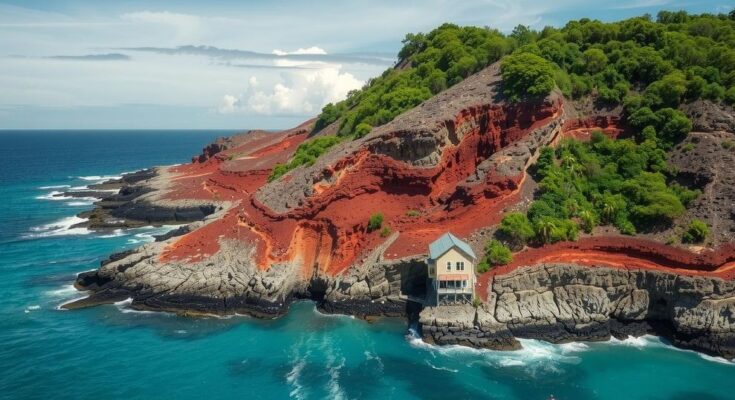Mayotte is confronting significant challenges from climate change, notably illustrated by the damage from Cyclone Chido. Experts point out the deep-rooted inequalities that exacerbate the impacts of such natural disasters, emphasizing the need for focused climate action to assist the island’s vulnerable population.
Mayotte, an archipelago situated in the Indian Ocean near Mozambique, is grappling with severe impacts from climate change, underscored by the devastation caused by Cyclone Chido. This recent storm exemplifies the increasing frequency and intensity of climate-related disasters affecting small island nations. Dr. Charlie Gardner, an expert from the University of Kent, emphasizes the intricate link between climate change and social justice, highlighting that the most vulnerable populations are often the least equipped to deal with such catastrophes. The island’s residents face vast inequalities in resources and infrastructure, which exacerbates their plight in the face of natural disasters.
Climate change has emerged as a pressing global issue, disproportionately impacting developing and low-lying nations. Mayotte, an overseas department of France, remains particularly vulnerable due to its geographic location and socio-economic challenges. As extreme weather events increase, the call for urgent action intertwines with discussions about justice, equality, and the need for comprehensive support systems for those most affected by environmental changes. Understanding these dynamics is crucial for formulating effective responses to the ongoing crisis.
In conclusion, Mayotte’s struggle against climate change reflects broader themes of inequality and injustice, as highlighted by experts like Dr. Charlie Gardner. The issues faced by the island’s population, particularly in the wake of Cyclone Chido, underscore the necessity for equitable climate action and support for vulnerable communities. Addressing these challenges requires a collective effort to enhance resilience and ensure that those disproportionately affected by climate change are not left powerless.
Original Source: www.france24.com



